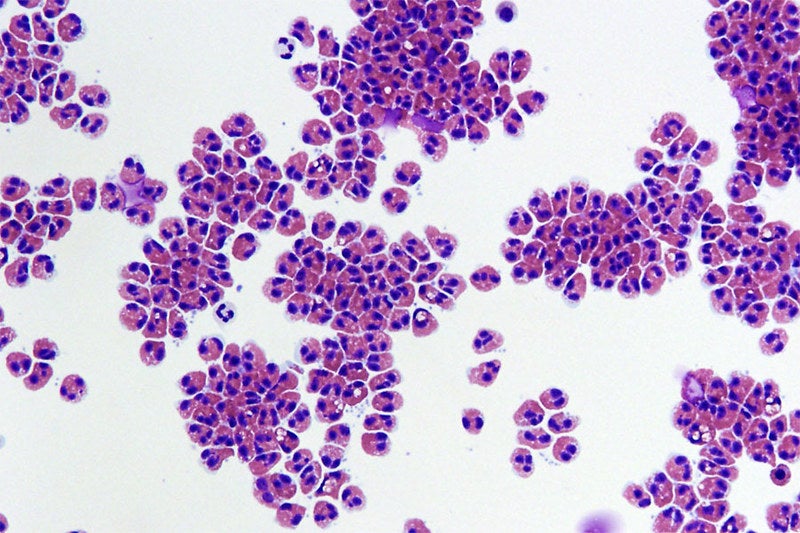
AstraZeneca has reported positive results from the Phase III OSTRO clinical trial of Fasenra (benralizumab) to treat patients with chronic rhinosinusitis with nasal polyps (CRSwNP).
Compared to placebo, the drug led to a statistically significant improvement in the size of nasal polyps and in nasal blockage.

Discover B2B Marketing That Performs
Combine business intelligence and editorial excellence to reach engaged professionals across 36 leading media platforms.
In addition, Fasenra showed statistically significant improvement in the endoscopic total nasal polyp score (NPS) and the nasal blockage score (NBS) in patients with severe bilateral nasal polyposis.
The trial involved severe bilateral nasal polyposis patients who were symptomatic even after continued treatment with standard of care (SoC), which includes intranasal corticosteroids (INCS), prior surgery, and/or systemic corticosteroids.
AstraZeneca added that the safety profile and tolerability of the drug were consistent with its known profile.
CRSwNP is an inflammatory disorder characterised by increased eosinophils levels in the upper respiratory tract. It causes benign growths called nasal polyps, which result in symptoms including nasal blockage and discharge and a decrease or loss in the sense of smell.

US Tariffs are shifting - will you react or anticipate?
Don’t let policy changes catch you off guard. Stay proactive with real-time data and expert analysis.
By GlobalDataAstraZeneca BioPharmaceuticals R&D executive vice-president Mene Pangalos said: “Current treatments, such as intranasal or oral corticosteroids and surgery to remove polyps, do not fully address patient needs.
“The OSTRO data indicate Fasenra can benefit patients with nasal polyps. We look forward to completing the full analysis and sharing these results at an upcoming medical meeting.”
Fasenra is a monoclonal antibody that attaches directly to IL-5 receptor alpha on eosinophils and attracts natural killer cells. This mechanism is meant to stimulate the near-complete depletion of eosinophils via apoptosis.
AstraZeneca in-licensed the drug from BioWa, a subsidiary of Kyowa Kirin in Japan. The drug is being developed to treat other eosinophilic diseases and chronic obstructive pulmonary disease.
OSTRO is a randomised, double-blinded, multi-centre, parallel-group, 56-week trial conducted in 413 patients across Europe and North America.
In January this year, AstraZeneca launched three new trials to evaluate Fasenra for the treatment of eosinophil-driven skin diseases.





